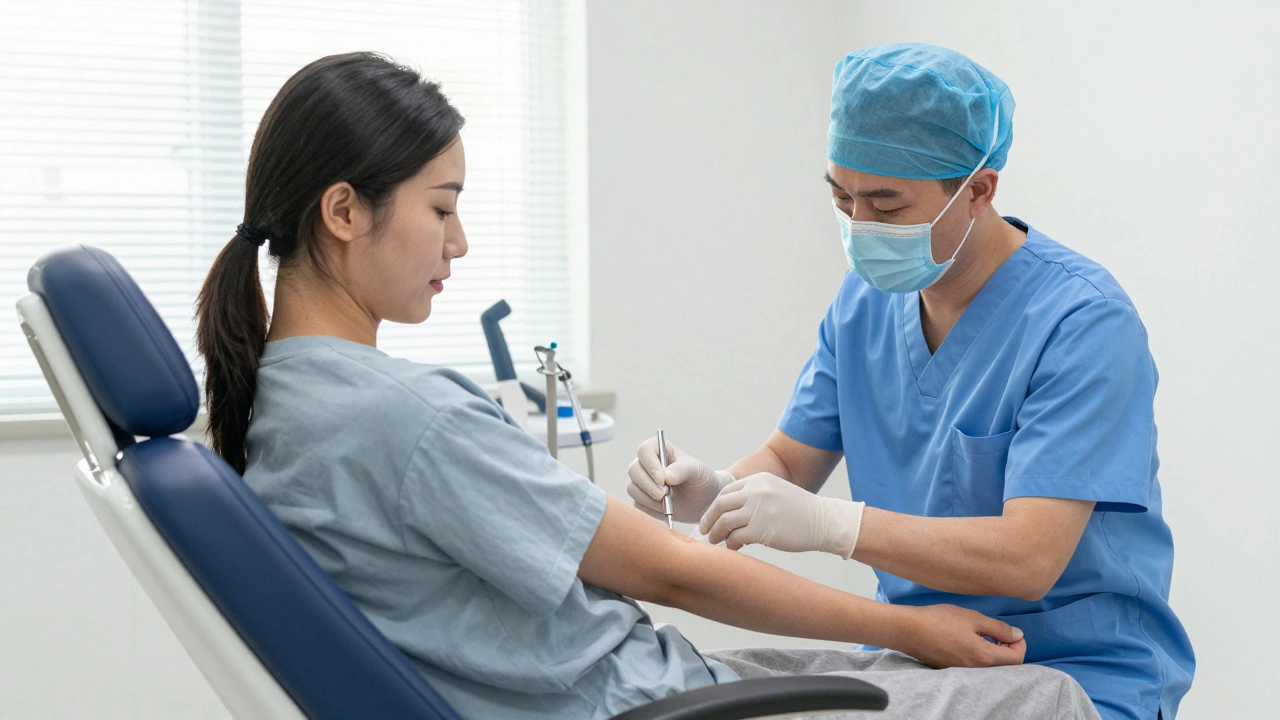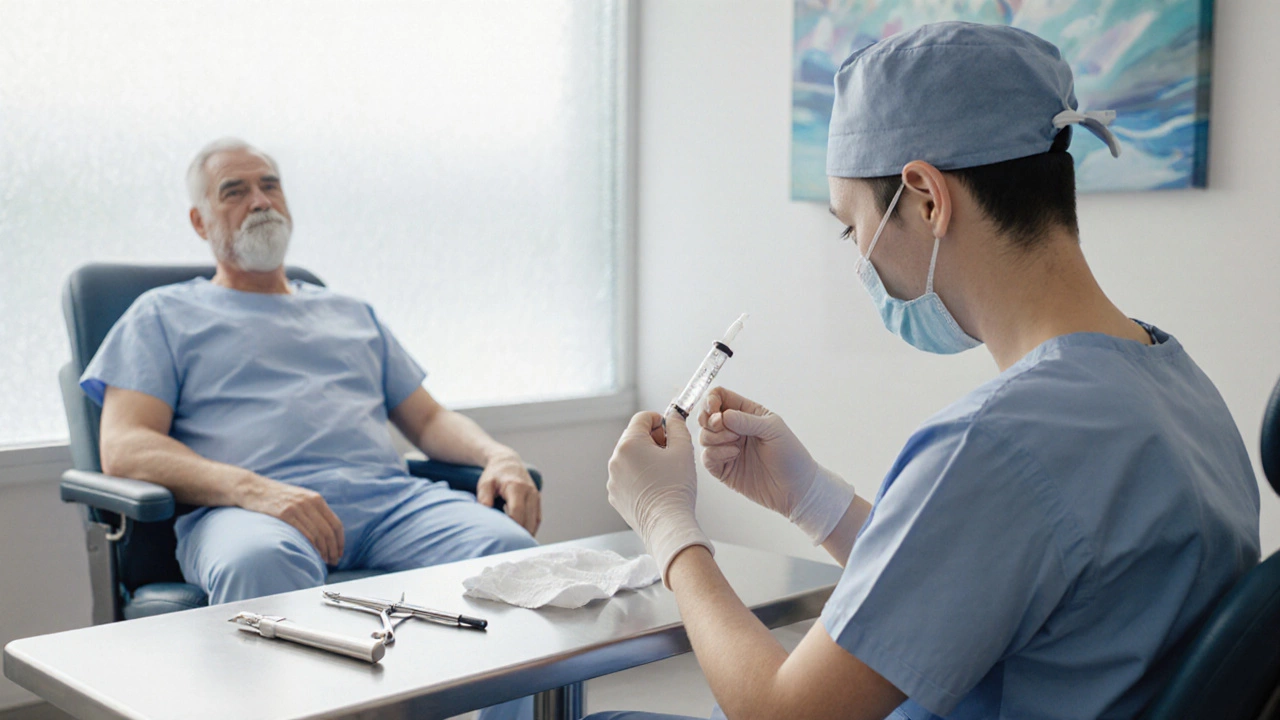Private Surgery Cost: A Practical Guide for UK Patients
Thinking about a private cosmetic or medical procedure? The first thing on most people’s minds is the price tag. In the UK, private surgery costs can feel like a mystery because they vary so much. This guide breaks down why prices differ, what you can expect to pay for common treatments, and how to get the best value without compromising safety.
What Determines Private Surgery Prices?
Three big factors shape the cost of a private operation:
- Procedure complexity: Simple treatments like a mole removal cost far less than a full facelift.
- Clinic reputation and location: A high‑end London clinic will charge more than a regional centre, even for the same procedure.
- Surgeon experience: Specialists with decades of practice often command higher fees, but they also bring a lower risk of complications.
Other elements include anaesthesia type, hospital stay length, and any after‑care packages. When you ask for a quote, make sure the clinic spells out each component so you can compare apples to apples.
Typical Price Ranges for Popular UK Procedures
Below is a snapshot of what most clinics charge in 2025. Prices are averages; your final bill may be higher or lower based on the factors above.
- Rhinoplasty (nose job): £4,000 – £9,000
- Breast augmentation: £5,500 – £10,000
- Liposuction: £3,500 – £8,000 per area
- Botox or dermal fillers: £150 – £350 per session
- Facelift (surgical): £9,000 – £20,000
Notice how non‑surgical options like Botox are a fraction of the cost of full surgical lifts. If budget is tight, many patients start with these less invasive treatments to see if they achieve the desired look before committing to major surgery.
Another hidden cost is post‑op medication and follow‑up visits. Some clinics bundle these into the main price, while others bill them separately. Always ask if the quote includes sutures, dressings, and any necessary scans.
Now that you have a feel for the numbers, let’s talk about making the expense manageable.
Smart Ways to Keep Your Private Surgery Budget in Check
1. Get multiple quotes. Even within the same city, clinics can differ by a few thousand pounds. Use a spreadsheet to list each item – surgeon fee, anaesthesia, facility charge – and compare side by side.
2. Ask about package deals. Some surgeons offer a discount if you bundle a main procedure with a follow‑up treatment, like a skin‑tightening session.
3. Check if your insurance covers part of the cost. Certain private health plans reimburse cosmetic procedures if they address a medical issue (e.g., reconstructive surgery after injury).
4. Consider financing. Many clinics partner with low‑interest credit providers or offer interest‑free payment plans over 6‑12 months. Read the fine print – missed payments can add fees.
5. Look for accredited clinics. The Care Quality Commission (CQC) rates facilities for safety and hygiene. Choosing a well‑rated clinic reduces the risk of costly complications later.
Finally, never base a decision solely on price. A cheaper surgery might mean a less experienced surgeon or outdated equipment, which could lead to revisions and higher long‑term costs.
Private surgery can be a worthy investment in confidence and health when you understand where the money goes and plan wisely. Use this guide to ask the right questions, compare offers, and find a provider that balances cost, expertise, and safety.
What Is the Safest Surgery Ever? Facts, Risks, and What Really Matters
The safest surgeries are simple, quick, and low-risk-like mole removal or eyelid surgery. Learn which procedures have the lowest complication rates, what private surgery really costs, and how to pick a safe provider.
Read More
Can You Get a Loan to Pay for a Surgery? Here’s How It Works
Learn how medical loans work to pay for private surgery in the UK, including eligibility, interest rates, alternatives, and real-life examples to help you make the right financial choice.
Read More
What Surgery Has the Highest Failure Rate? Real Risks and What You Need to Know
Liposuction and tummy tucks have the highest failure rates among cosmetic surgeries. Learn why cheap private procedures carry hidden risks, what real complications look like, and how to protect yourself before signing up.
Read More
What Is the Least Serious Surgery? A Practical Guide to Low‑Risk Procedures and Costs
Explore the least serious surgeries, their costs, recovery times and how to choose a private provider. A clear guide for low‑risk procedures in New Zealand.
Read More
Which Surgery Has the Longest Recovery Time? Private Surgery Cost Insights
Discover which surgeries have the longest healing times, typical recovery periods, private cost estimates, and tips to speed up healing after major procedures.
Read More
Private Surgery Cost: How Can I Make Surgery Cheaper?
Worried about private surgery costs burning a hole in your wallet? This article breaks down real ways you can lower your medical bills without sacrificing safety or quality. Discover practical tips, insider tricks, and lesser-known resources to slash costs. We cover choosing the right clinic, bargaining strategies, and patient safety, so you can walk away more informed and less stressed. Whether it's a planned procedure or a sudden need, these strategies can save you thousands.
Read More
Surgery Cost: What Most Private Procedures Really Cost
Figuring out what private surgery actually costs can be confusing, especially when prices seem to jump all over the place. This article breaks down the real costs for the most common surgeries, sharing why prices vary and what you might end up paying out of pocket. You'll find out what makes one clinic more expensive than another, and which costs you should watch out for. With some practical tips, you’ll know how to compare prices and avoid unexpected bills. Perfect if you’re trying to budget for surgery or just want to know what you’re getting into.
Read More
Most Expensive Surgery: What Are the Top Private Surgery Costs?
How much can surgery really cost? This article breaks down the world’s priciest surgeries, revealing why their price tags skyrocket in the private medical sector. Discover the factors driving costs, real figures for record-setting procedures, and what to expect if you ever need one. Get practical tips for navigating large medical expenses, plus advice to make sense of the costs if you’re planning private treatment. Expect honest, straightforward advice—no sugarcoating.
Read More
Surgeries with a 3-Month Recovery: What to Expect and Plan For
Recovering from surgery can be a lengthy journey, often taking up to three months for certain procedures. This article explores various surgeries that demand such recovery time, offering insights into why they're lengthy and what one can expect during the healing process. It also includes practical tips for managing recovery at home. This guide caters not just to those undergoing surgery but also to anyone caring for a loved one facing this challenge.
Read More
Highest Paid Surgeons: Who Earns the Most in Private Practice?
Discover which surgeons earn the most in private practice, driven by factors like specialization and geographical demand. This article delves into the top-paying surgical fields and explores how private surgery costs influence surgeon incomes. Learn about the balance between high earnings and career responsibilities. Whether you're curious about surgeon salaries or considering a career in surgery, this guide sheds light on the financial landscape.
Read More









